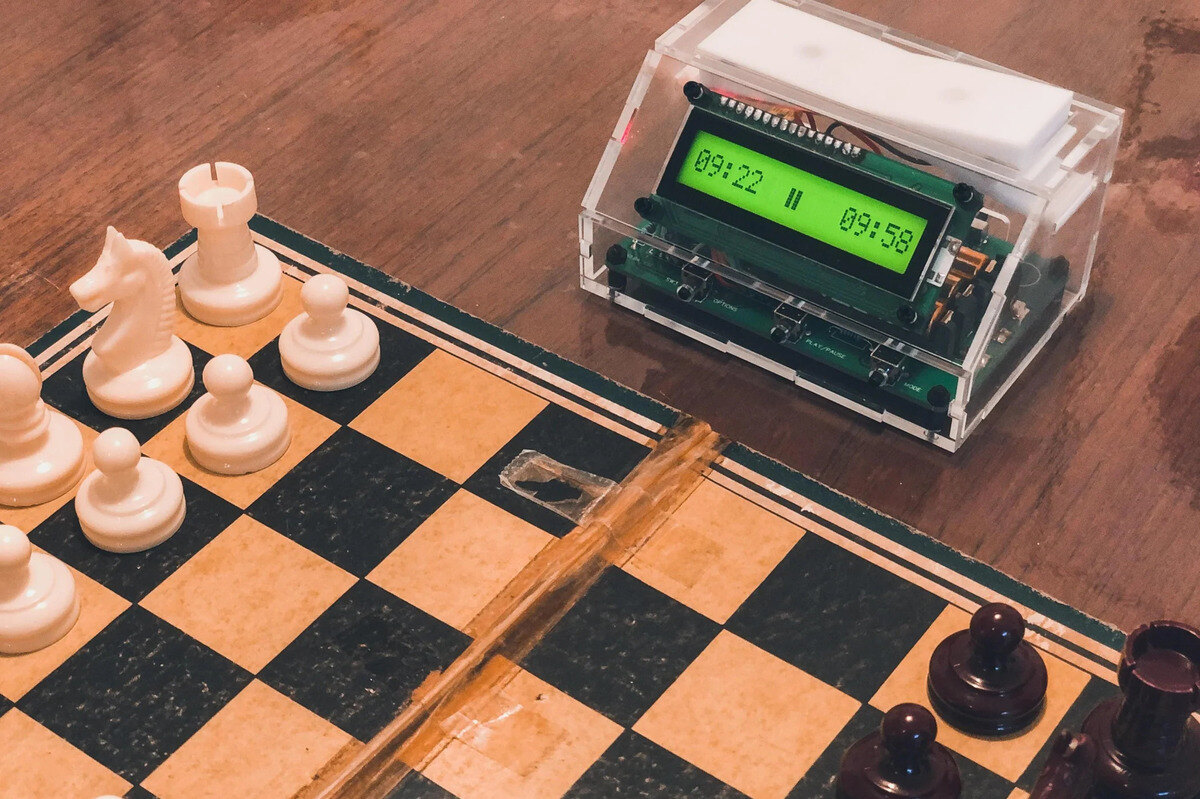
Digital Chess Clocks on Competitive Play
Competitive gaming has always relied on precision and fairness, and in chess, few tools are as essential as the chess clock. For decades, analog timers determined the pace of play, but the shift to digital chess clocks has transformed tournaments and casual games alike. With advanced timing features, customizable settings, and greater accuracy, these devices are reshaping the way players approach strategy and time management.
This evolution is more than a convenience—chess timers have introduced new formats, altered gameplay dynamics, and impacted the decision-making process at every level of competition. As chess continues to gain popularity through online platforms and global tournaments, the role of digital clocks is becoming even more prominent.
This article examines how digital chess clocks are changing competitive gaming. It covers their impact on time controls, fair play, and player psychology while addressing the broader implications for the future of chess and other timed board games.
A Shift from Analog to Digital Timing
For years, traditional analog chess clocks were the standard in tournaments, using mechanical dials and buttons to track player time. While they served their purpose well, they had limitations. Analog clocks required manual calibration, lacked precision, and did not allow for flexible time settings.
The introduction of digital chess clocks changed everything. With the ability to program increments, delay times, and different control settings, these devices offered a new level of accuracy. Players could now adjust the timing structure based on the format of the game, ensuring consistency across different events.
Additionally, digital clocks reduced human error. Unlike their mechanical predecessors, they did not require resetting after each round, eliminating disputes over whether a player had truly run out of time. Their reliability made them the new standard for chess organizations and professional competitions.
The Impact on Chess Tournaments
Tournaments require strict time management, and digital clocks have significantly improved how matches are conducted. The introduction of delay and increment timing has allowed games to be more dynamic, preventing premature losses due to clock pressure alone.
The most common setting in major events is the Fischer increment, named after former world champion Bobby Fischer, who advocated for added seconds per move. This ensures that players always have time to think, even in fast-paced time controls. Rapid and blitz games, which have grown in popularity, also rely on digital clocks for their accuracy.
With these innovations, organizers can now offer a broader range of formats. Digital clocks allow for bullet chess (one-minute games), rapid games, and hybrid settings that mix classical and faster-paced styles. This adaptability has made tournaments more engaging for players and spectators alike.
Precision and Fair Play
One of the most significant advantages of digital chess clocks is their role in enforcing fair play. In high-stakes matches, even a fraction of a second can determine the outcome. Analog clocks were prone to inconsistencies, with some players able to “ride the flag” and move just before their time expired.
Digital timers eliminate such ambiguities. Once a player’s time runs out, the clock displays the result instantly, preventing disputes. Many modern clocks also feature audible signals and automatic move counters to ensure adherence to game rules.
Another key aspect is their ability to minimize time-related disputes. In the past, players had to rely on arbiters to determine whether time had expired. With digital tracking, this process is now fully automated, making it easier to enforce time limits with complete accuracy.
How Digital Clocks Affect Player Strategy
Time management is a crucial part of chess strategy, and digital clocks have introduced new challenges and opportunities. Players must now factor in increment and delay settings when planning their moves, adjusting their style based on the available time.
For instance, in games with increment settings, players can use quick, safe moves to accumulate extra seconds and extend their thinking time in critical positions. Conversely, in formats without increment, players must carefully manage their overall clock usage to avoid running into time trouble.
The ability to track time more accurately also allows players to analyze their games in greater detail. Many modern clocks store time usage patterns, helping competitors identify when they spent too much time on a particular move. This data-driven approach to chess preparation has become a valuable tool for serious players.
The Role of Digital Clocks in Online Chess
The rise of online chess platforms has further cemented the importance of digital time controls. Platforms like Chess.com and Lichess rely on digital timers to regulate games, making them an integral part of modern play.
Digital clocks in online chess offer precision down to milliseconds, ensuring that time-based wins and losses are as fair as possible. They also enable real-time updates and synchronization across different devices, allowing players from around the world to compete seamlessly.
Moreover, digital timers help simulate over-the-board (OTB) conditions in virtual environments. By incorporating the same delay and increment settings used in traditional tournaments, online platforms have created a bridge between internet-based play and classical chess formats.
Expanding Beyond Chess: Digital Clocks in Other Board Games
While chess has been the primary beneficiary of digital timing, other competitive board games have also adopted these clocks. Games such as Scrabble, Go, and Backgammon now use digital timers to maintain fairness and regulate gameplay.
In Scrabble tournaments, digital clocks prevent players from taking excessive time to form words, ensuring that matches progress smoothly. Similarly, Go players use precise timing structures to manage their moves effectively, particularly in high-level competitions.
The expansion of digital timers beyond chess demonstrates their versatility. Whether for casual games or professional settings, they have become an indispensable tool for maintaining structure and integrity in timed competitions.
Choosing the Right Digital Chess Clock
With a growing market for digital chess clocks, players and tournament organizers have various options to consider. The best clocks offer clear displays, durable buttons, and customizable timing modes that cater to different playing styles.
Popular models like the DGT 3000 and Chronos GX have become favorites among professionals, thanks to their reliability and ease of use. These clocks feature programmable delay settings, battery efficiency, and sturdy designs built for long-term use.
For casual players, more affordable options like the Leap PQ9907 offer basic timing functions without unnecessary complexity. Choosing the right clock depends on the intended level of play and the preferred features for managing time effectively.
The Future of Digital Chess Clocks
As technology continues to advance, digital chess clocks are likely to incorporate even more innovative features. Some models already include Bluetooth connectivity for integration with online platforms, while others offer voice alerts to assist visually impaired players.
In the future, we may see AI-driven clocks that analyze time usage and suggest improvements in a player’s strategy. Smart clocks with touchscreen interfaces and cloud storage capabilities could further revolutionize how players track and review their games.
Regardless of how they evolve, one thing is certain—digital chess clocks will remain a cornerstone of competitive play. Their ability to balance fairness, accuracy, and adaptability makes them indispensable for both casual and professional gamers.
A Timeless Tool for Competitive Play
Digital chess clocks have reshaped the way competitive games are played, offering precision, fairness, and flexibility. From major tournaments to casual matches, these devices have become an essential part of chess and other strategic board games.
With ongoing advancements in technology, digital clocks will continue to refine gameplay dynamics, providing players with better tools to manage time and improve their skills. Whether you’re a beginner or a grandmaster, understanding how these clocks work can give you an edge in competitive play.







